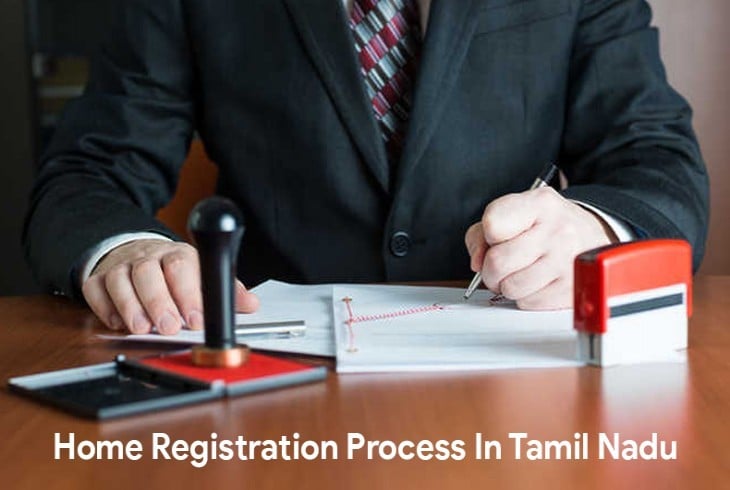Even as a 18 year old, owning a home and seeing your family smile their way through the day always manages to bring happy tears and a vivid kind of happiness. Buying a house is surely building assets but it does have a whole lot of emotion and sentiment associated with it. Having said that, selecting the property of your choice and closing the deal is not the end of the story. It is just the beginning! If you have bought a house, registering it in your name is very important too. However lengthy and time consuming it may be, don’t procrastinate!
Let’s learn the steps of the property registration process in Tamil Nadu. They may require you to be hands on with all the information and paperwork but hey! It’s for a lifetime of happiness after.
The house registration process can be carried out in 2 ways, 1 being the “in person procedure and the other being “online”. The online process of registration summed up in a few points are as below:
- Log into https://tnreginet.gov.in/portal/
- Select registration sub option and find the asset registration option.
- Keep the stamp duty and date of purchase handy.
- Upload all the documents required.
- After completion the entire form can be downloaded
- As per the date visit the registration office and complete the property registration process.
Here’s your in depth ready reckoner.
Step 1: Property Due Diligence
Before you decide on “sealing the deal” i.e before you negotiate the price or kickstart the process for property sale agreement it is of utmost importance to first undertake an in depth due diligence of the property to be purchased. Due to the complexity and the ever evolving nature of the property laws, involving someone with a proper understanding of the same could be beneficial and might save you some time.
Step 2: Stamp Paper Purchase
Once all the checking is thoroughly done and the decision of purchasing the property is made, one must go ahead with the purchase of the stamp paper. Always remember, the stamp paper must be purchased based on the property registration charges.
Step 3: Preparing The Sales Deed
A sales deed is legal document that is used as an evidence of sale and transfer of ownership of the property from the seller to the buyer. It is one of the most important document of ownership in property transactions. The sales deed must ideally be drafted by a professional after purchasing a stamp paper. One of the following few people can prepare a sales deed:
- Advocate
- Licensed document writers
- Chartered accountants having document writing license
Always remember, experience matters!
Step 4: Property Registration
The property registration process must be completed within four months of executing the sales deed. A delay in the registration process could lead to the following penalty:
- 25% of the registration free (up to 1 week)
- 75% of the registration free (up to 1 month)
- 100% of the registration fee (for 4 months)
The property registration process must be completed within 4 months from the date of sales deed execution. This process must be completed at the sub registrars office located in the area or the district in which the property is located. Also, it is important to note that property registration done outside the state is considered null and void.
Documents required for Property Registration Process
After understanding of the registration process, know the documents needed for registration too. The list is as per the following:
- Duty stamped signed and executed document.
- The claimant of the sales document must sign in the sales deed and also appear before the registering officer for registration of the sales deed.
- PAN Card or number
- Patta transfer application with court fee
- Patta passbook
- An ID card for executant and claimant (for all deeds)
- An ID card for witness (for power deed only)
Have you recently bought a house in Tamil Nadu? This is surely your immediate go to!












